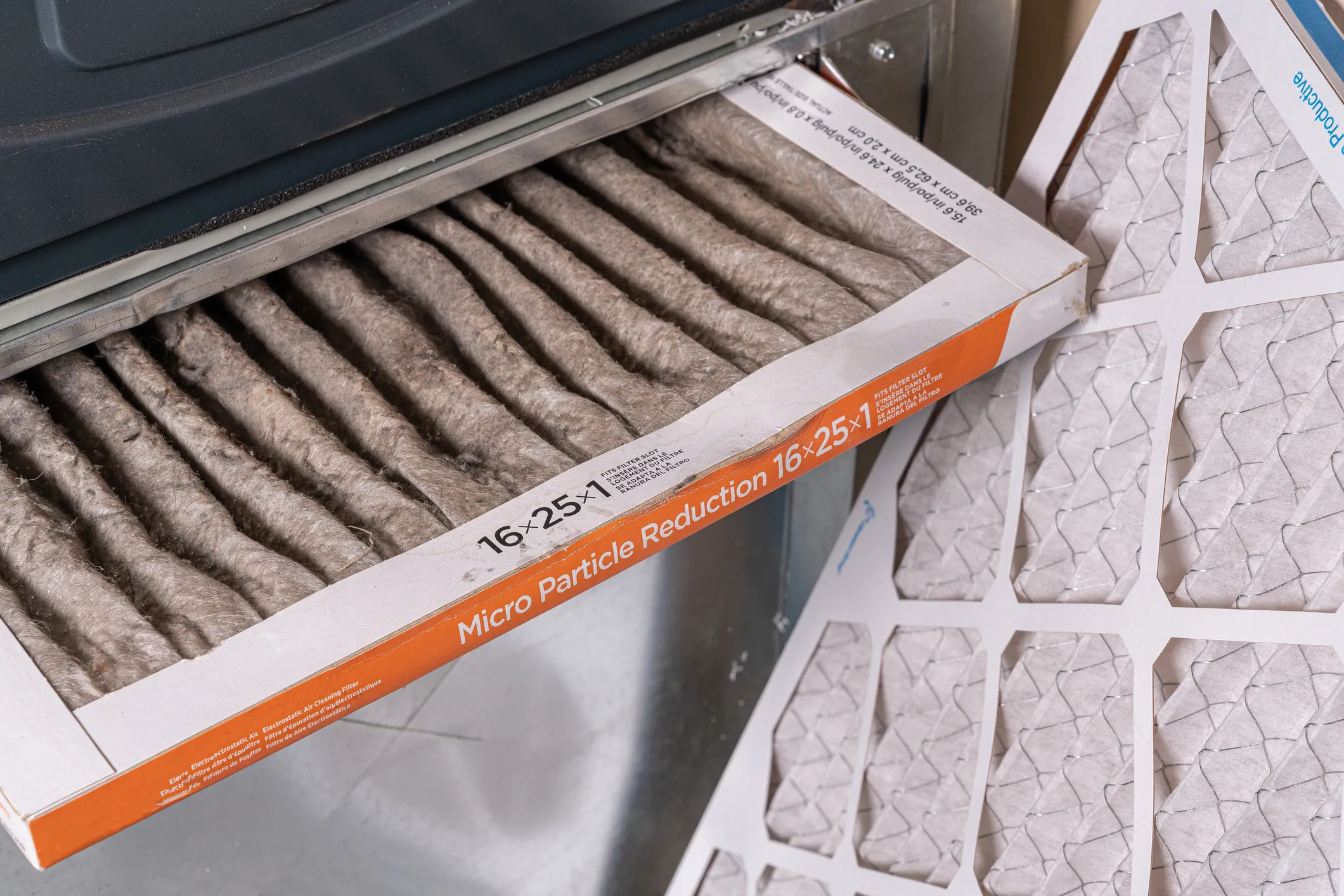Picking the Right Air Filter for Your HVAC System
Maintaining clean, pure indoor air is a top priority for comfort-minded homeowners and using the correct HVAC air filter plays a significant part in providing it. Follow this guide to help you select the right filter kind, size and efficiency rating for your home’s indoor air quality needs.
What Is the Best Time to Change Your Air Filter?
The first thing to to think about is the frequency you need to replace the filter. The most common suggestion for conventional residential filters is to replace them every 90 days for the standard home without pets. If you have a dog or cat, reduce this to every 60 days. For homes with many pets or family members with allergies, change the filter as often as every 30 days.
Picking the Perfect Air Filter Size
Not all home comfort systems are identical, so major brands make air filters to fit different-sized slots. Getting the correct size ensures a tight seal without air leaking past the filter. Here are a few tips to find out the perfect filter size:
- Examine the filter already in place for a label detailing the dimensions.
- Take measurements of the filter slot. Measure the height, width and depth to ensure a tight seal without forcing the filter into the opening.
- Consult the HVAC manual, which should indicate the filter size and type recommended for your system.
Types of HVAC Air Filters
Different filter materials and designs are all offering air quality improvements, and each is suited for different needs. Here are some widely used types:
- Fiberglass filters are the most straightforward and cost-effective option. Made from layered fiberglass strands, they protect the HVAC system from large particles that could accumulate on the equipment. However, they don’t filter small particles that are harmful to breathe, so don’t count on them to deliver industrial-grade indoor air quality.
- Pleated filters using polyester or cotton folds offer a bigger surface area to trap smaller particles.
- Electrostatic filters use self-charging fibers to capture and hold airborne particles. They come in both single-use and reuseable forms.
- HEPA filters offer impressive filtration. However, because they severely limit airflow, they are usually used to maintain air quality in medical facilities, clean rooms and other commercial properties. If you would like a HEPA filter in your residential HVAC system, collabourate with a heating and cooling technician to determine compatibility.
The MERV Rating System for Air Filters
Minimum efficiency reporting value, or MERV, is the system used to assess air filter performance. Ratings span 1 to 20, with high numbers demonstrating a filter’s ability to collect very fine particles.
- MERV 1-4 describe the most basic filters, helpful for large particles like dust, pollen, lint and carpet fibers. They are meant for limited filtration but are a solid and economical choice for simple applications without pets or allergies.
- MERV 5-8 are ideal for homes and commercial buildings where pet dander, mold spores, pollen and dusting aids need control. They offer a good balance between cost and filtration for average needs, making them a popular choice among homeowners.
- MERV 9-12 are designed for filters that can capture legionella, humidifier dust, auto emissions and more. They provide superior air quality to help relieve allergies or mild asthma symptoms.
- MERV 13-16 are viewed as top-of-the-line filters for residential use. They’re the standard choice in hospitals and other healthcare settings where pure air is necessary. These filters can capture bacteria, tobacco smoke and even certain virus particles.
- MERV 17-20 ratings are mostly found in HEPA filters, which capture approximately 99.97% of particles down to 0.3 microns in size, like lead dust, humidifier dust, asbestos fibers and other incredibly small particles.
How to Make Your Selection
When figuring out which type is the ideal home air filter, focus on these factors:
- Household needs: Those with pets, allergy and asthma sufferers, and homes in areas with high dust or pollution may be better from using a filter with a higher MERV rating.
- System compatibility: Before upgrading to a filter above MERV 12, make sure your HVAC system can support the increased filtration without compromising airflow.
- Filter thickness: 4- to 5-inch-thick filters usually work longer and provide more consistent filtration than standard 1-inch filters. Ensure your system is compatible.
- Cost vs. benefits: High-end filters have a higher initial price tag but need replacement less often and provide higher air quality. Calculate the potential long-term savings and health benefits before you make your decision.
- HVAC professional’s advice: The safest approach to make an informed decision is to schedule a consultation with an HVAC technician who will provide reliable advice based on your home’s system and air quality requirements.
Breathe Better with Enercare Rob's Albertan
If you’re looking for a better air filter, let Enercare Rob's Albertan guide you to the perfect selection. We can install high-efficiency air filtration systems to better protect your HVAC equipment and minimize asthma and allergy symptoms. We take pride in enhancing your life and comfort with help from our tailored, professional services. For assistance with selecting the right air filter or other HVAC needs, please contact Enercare Rob's Albertan today.



